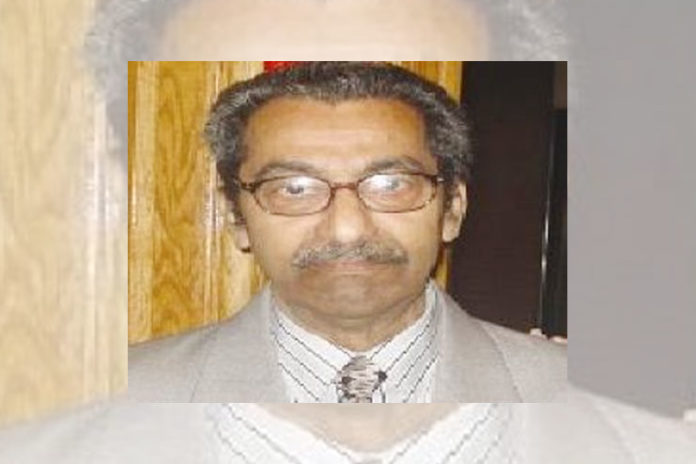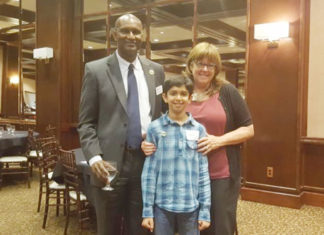Philip Kalayil, who was a prominent Indian American community leader from Chicago had a natural death on March 13 in Skokie Hospital, according to his daughter Ann. He was 86.
America comes together against hate crimes on Indian Americans
Kalayil is survived by his wife Annamma, sons Tom and Sales; sisters, Sister St. John Kalayil, Sister Dominic Savio Kalayil and Tresia; eight grandchildren; and 10 great-grandchildren. Another daughter, Lisa Pullukat, expired in 2006.
He was living in Chicago’s West Rogers Park neighborhood for many years.
Kalayil migrated to Chicago from India in the mid-1950s. Along with other Indian Americans, he started the Indian Catholic Association of America around 1960. In 1980, Kalayil helped to start the Indo-American Democratic Organization to empower the people to register to vote and to make their opinions heard.
Kalayil was born in the the village of Keezhoor in Kerala. He was a high school teacher of economics, married with two children, when he decided to come to the United States for more training. In 1956, he came by ship to New York, then to Chicago by bus, to study at Loyola University, where his uncle, a priest, was also studying.
In 1959, his wife, Annamma, joined him in Chicago, leaving their children in India. In 1964, she and their daughter Ann, who was born in Chicago, returned to India. Kalayil followed in 1965 to teach and be the librarian at St. John’s Medical College in Bangalore. He returned to Chicago with his family in 1967.
He earlier got a master’s degree in sociology from Loyola and soon finished his work on a second master’s in industrial relations. He taught at a local business college briefly before going to work as a social worker for Catholic Charities in Chicago. In 1970, he went to work in the city of Chicago in its Department of Human Services. He was assistant director of emergency services with the department when he retired about 20 years ago.
With median household income at $103,821, Indian Americans are the richest
His 1961 master’s thesis has examined the experiences of racial discrimination by Indian students and its effects on their perceptions of America. That spurred him to work to bridge gaps between Asian-American groups divided by ethnicity, religion, socio-economic levels and other factors.
Kalayil’s leadership and bridge-building between the diverse racial and ethnic groups was recognized by the Association for Asian American Studies, which has honored him with its Heart of Asian America Community Award in 2008.
By Premji













































